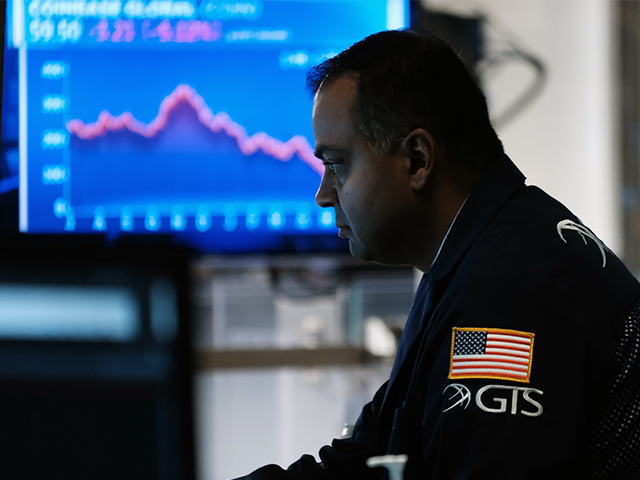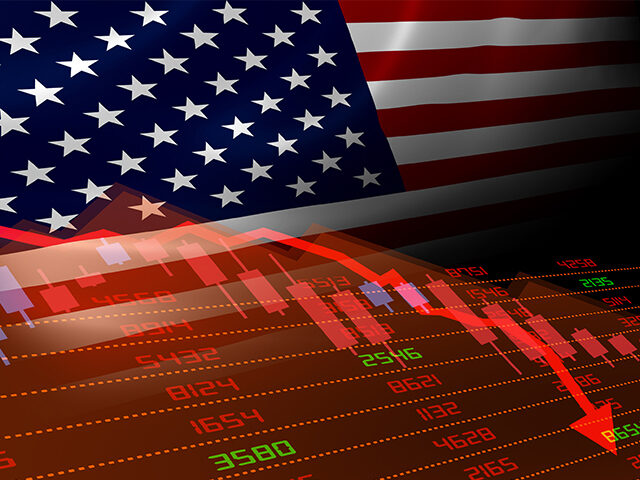A solid majority of Americans think we are in a recession, but that consensus conceals some deep divides divide on the economy.
The divides do not run that deep along demographic lines. The most recent poll from the Economist and YouGov found that 58 percent of Americans say we are in a recession today. Men are slightly more likely than women to say we’re in a recession, at 59 percent to 57 percent. A 51 percent majority of blacks say we’re in a recession, with 27 percent saying we’re not and 22 percent saying they are not sure. Among Hispanics, 53 percent say we’re in a recession, 22 percent say we are not, and 25 percent say they are not sure.
Whites are more likely to say we’re in a recession. Sixty-five percent of white men without a college education say we’re in a recession and 60 percent of white women without a college education say we’re in a recession. Sixty percent of white men with a college education say we’re in a recession and 56 percent of college-educated white women agree.
Where we split is over politics. Just 38 percent of Biden voters say we are in a recession, versus 82 percent of Trump voters. Forty-four percent of registered Democrats say we’re in a recession, versus 76 percent of Republicans. In short, America’s political tribes do not just disagree about policy but even about reality.
Part of the gap may reflect different views of what constitutes a recession. Fifty-two percent of Trump voters and 50 percent of registered Republicans say that the prices of goods and services are the best indicator of a recession. Just 34 percent of Biden voters and 33 percent of Democrats take that position. Interestingly, Biden voters are far more likely to point to the stock market as the best indicator than Trump voters, at nine percent to three percent.

Traders work on the floor of the New York Stock Exchange (NYSE) on June 27, 2022, in New York City. (Spencer Platt/Getty Images)
The factors that most economists would cite as recession indicators get far less support than the prices gauge. Just 23 percent of the public thinks the question of whether the economy is growing or shrinking is the best indicator, with 24 percent of Democrats and 25 percent of Republicans. Just 16 percent of Democrats look to the jobs reports and unemployment rate. Only seven percent of Republicans do. So perhaps that is something of a bipartisan agreement: the public largely agrees that they do not think of a recession the same way economists do.
Speaking of jobs reports, tomorrow we will get the Labor Department’s Job Openings and Labor Turnover survey for July. While that might seem like ancient history, it should be interesting to see if the massive hiring spree in July—528,000 workers added to payrolls—was accompanied by a growth in openings or if that hiring filled earlier openings. Wall Street’s economists think the number of openings will fall to around 10.4 million from June’s 10.7 million. If openings go in the opposite direction, this is likely to bring on worries that the Fed will have to raise interest rates more rapidly to cool off the labor market.
Much the same dynamic likely applies to Friday’s jobs report. Economists expect 300,000 jobs for the month, with 290,000 of those private sector hires. Average hourly earnings are expected to climb 0.4 percent, a slowdown from 0.5 percent. The unemployment rate is expected to hold steady at 3.5 percent. Any significant “beat” on these figures signaling more jobs, higher wages, or lower unemployment will likely set off something of a panic about the Fed’s next rate hike in September and the path of rates after that. The market has decided that the July hiring was peak labor market tightness, just as June was peak inflation. It now expects a steady cooling. If things go the other way, it will likely be a rough day for stocks.

COMMENTS
Please let us know if you're having issues with commenting.